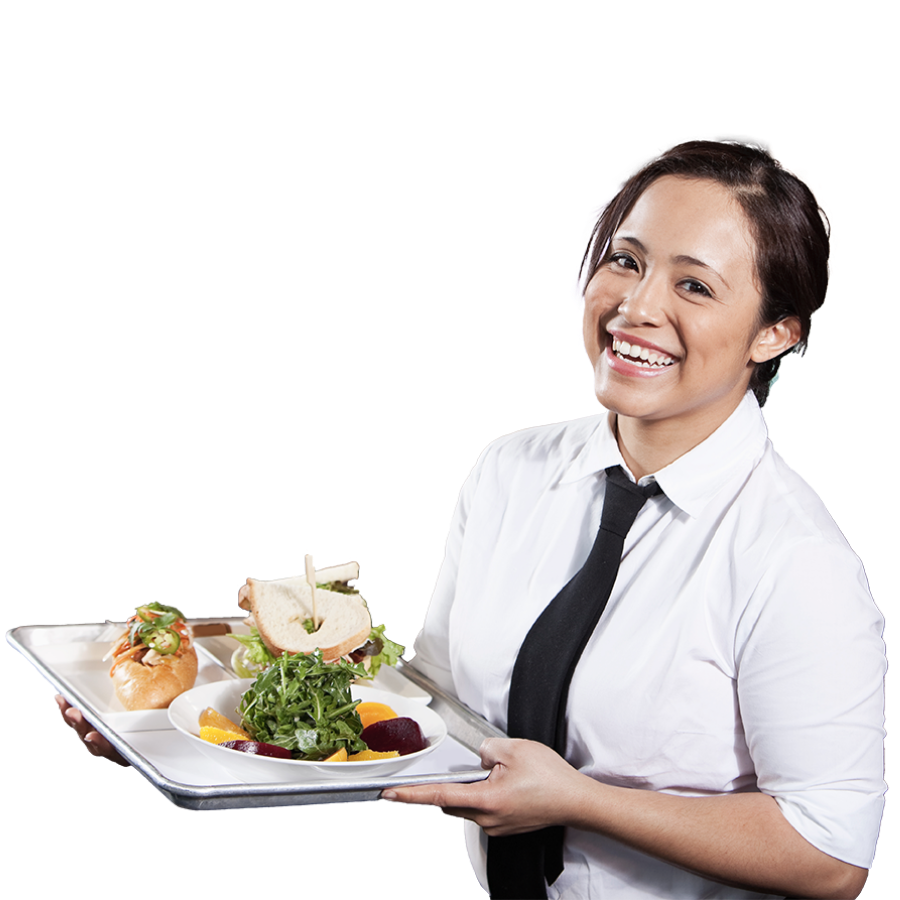In another installment of our Food Handler How-To series, we chill out with an often forgotten element of food service: ice.
If you’re a bartender or barback, serve food or drinks, or prepare food in a kitchen, odds are you’ll be handling ice on the job. What you may not realize is that similarly to high-risk foods such as meat, seafood, and dairy, ice poses a risk to food safety if handled incorrectly, and could be a potential source of foodborne illness.
Foodborne illnesses occur when a food that has been contaminated with dangerous bacteria, viruses or parasites is consumed. In the U.S. an estimated 48 million people are affected by foodborne illness each year. The symptoms of foodborne illness can range from mild to severe, and of those affected, an estimated 128,000 are hospitalized, and 3,000 die from foodborne diseases annually.
How could ice be a risk if it’s just water?
It might seem easy to disregard ice as a food safety risk given that it is just water, but ice should be considered the same as any food item when you’re working with it. Ice is just as susceptible to contamination if mishandled or exposed to something dangerous.
How does ice become contaminated?
There are three types of food contamination: chemical, physical and biological. Just like food, ice can become contaminated through any of these.Here are a few examples:
- Cleaning chemicals aren’t fully removed when cleaning ice machines or storage containers, causing chemical contamination
- A glass breaks and shards fall into the ice container, causing physical contamination
- A food handler touches the ice with bare hands, causing biological contamination
These are just some of the ways that ice can be contaminated, but by following best practices for how to handle ice correctly, you’ll keep your customers safe.
How to handle ice safely
So what are the guidelines food handlers and alcohol servers should follow for how to safely handle ice?
Start with clean hands – Before working with ice in any way, always wash your hands using the correct hand washing method (at least 20 seconds, in warm water, with soap). Also – and this should go without saying for working with any food item – do not work with ice if you’re feeling sick, or experiencing vomiting or diarrhea.
Use utensils like scoops and tongs – Always use utensils, and never touch ice with your bare hands. Before using any utensils, be sure to clean, sanitize and disinfect them. When you’re done, store utensils in an area where they are not at risk for contamination. One more tip: never use a glass to scoop ice.
Store ice properly – When storing ice, use specific containers that have been cleaned, sanitized and disinfected before use. Once in use, be sure they are properly labeled. Containers not being used should be stored upside-down to prevent contamination.
Maintain ice machines – Ensure that all ice machines are clean and working properly. Inspect ice machines regularly and perform regular maintenance to ensure their proper function. Make sure ice machines are locked so they can’t be tampered with, and don’t store items near the machines that could contaminate them. This could include recycling bins, stacks of dirty dishes or garbage cans.
Remember: ice should be treated like any other food item when you’re using it. Following these tips will ensure you know how to handle ice safely to prevent contamination and the spread of foodborne illness. To learn more about preventing foodborne illness, be sure to complete online food safety training, like Userve’s Food Handler Course. Our training is 100% online, can be completed anywhere from a mobile device, and includes the final exam you need to finish your training and get your Food Handler Card.
Be sure to also check out more from our Food Handler How-To Series, including our blogs on handling frozen foods, correctly washing produce, and buying, storing and preparing poultry. For more information on food handler training, click on the link below to find the course offered in your state.

